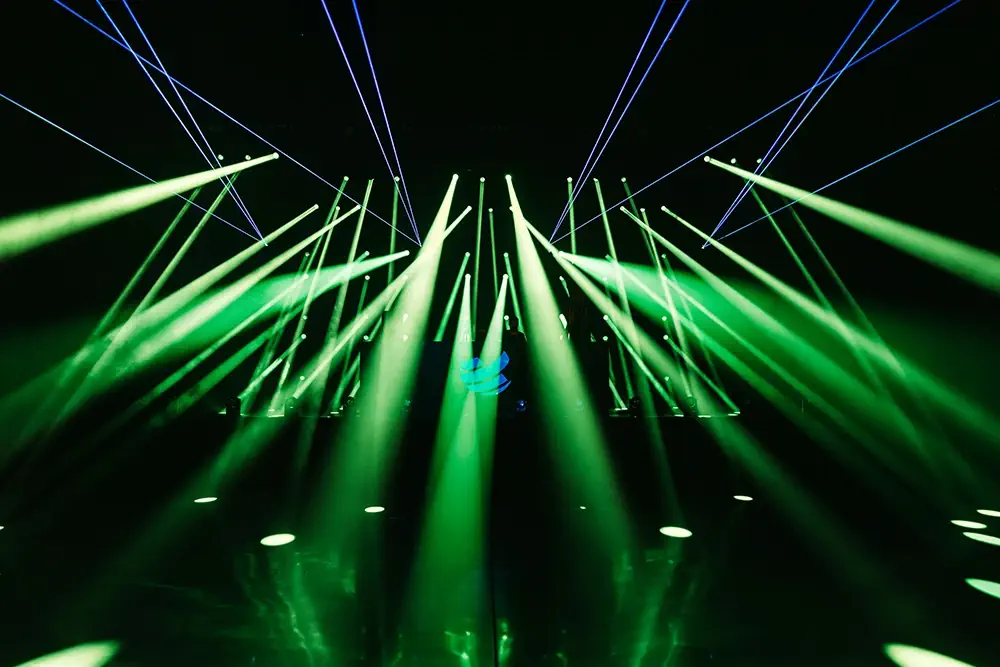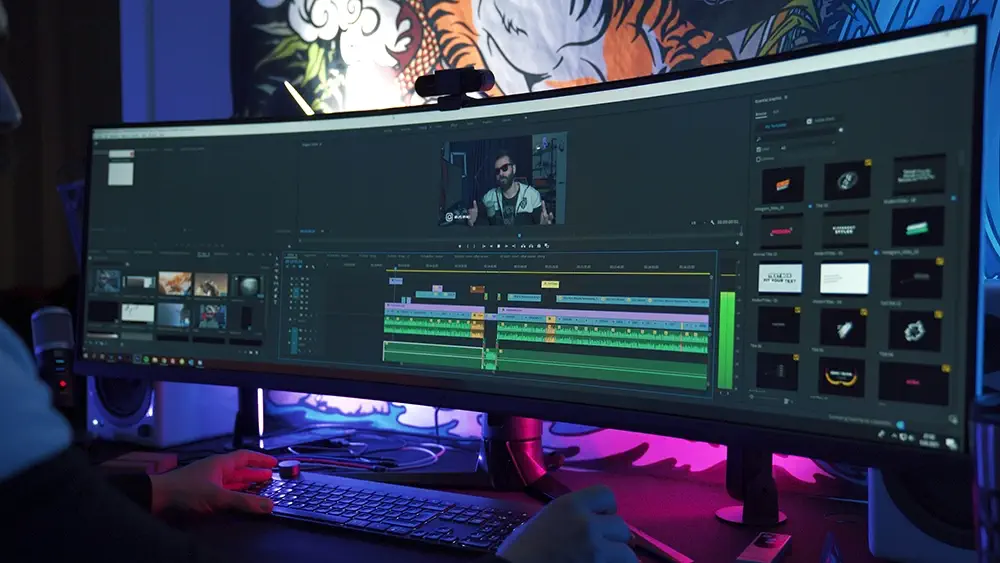In today’s digital age, audiovisual event production has become a fundamental component for the success of any meeting, conference or celebration. It is not only about capturing moments, but also about creating an immersive and connective experience for attendees, both in person and online. The importance of audiovisual event production lies in its ability to transform a standard presentation into a dynamic and immersive experience.
The Importance of Audiovisual Event Production
Audiovisual event production is not just an add-on; it is a central piece that completely transforms the attendee experience, the impact of the message conveyed and the overall reach of the event. Here’s a detailed breakdown of why this element is so crucial.
Enhances the Attendee Experience
The attendee experience is fundamental to the success of any event. Quality audiovisual delivery captures and holds the audience’s attention, creating a dynamic and stimulating atmosphere. Impressive visuals, clear sound and interactive multimedia content not only enrich the attendee experience but also increase overall satisfaction and retention rates. For example, implementing explanatory videos and live demonstrations can make complex concepts easier to understand and much more engaging.
Increases the Perceived Value of Event
The quality of the audiovisual event production directly reflects the perceived value of the event. An event with outstanding audiovisual production is seen as more professional and valuable, justifying the investment of time and resources by both attendees and sponsors. This perception of high value can translate into increased loyalty and the likelihood that attendees will recommend the event to others, amplifying its impact and success in the future.
Facilitates Content Dissemination and Viral Reach
In a world where content is king, effective event filming ensures that content is not only seen and heard in the moment but also shared and distributed widely after the event. Recorded sessions, highlights and interviews can be shared on social media, extending the reach of the event to a global audience and increasing its shelf life well beyond the event date. This not only enhances the visibility of the event but also contributes to the content marketing strategy of the organising brand or company.
Provides Valuable Data for Post-Event Analysis
Audiovisual event production also plays a crucial role in gathering data for post-event analysis. Audience interaction with audiovisual content can be tracked and analysed to gain insights into what worked best and what can be improved for future events. This analysis can range from audience engagement to viewing rates and social media interaction, providing a solid basis for strategic decision making and future planning. Event streaming platforms such as Eventscase can help you with this task.
Strengthens Emotional Connection
Finally, audiovisual performance has the power to connect emotionally with audiences, creating a memorable experience that resonates long after the event has concluded. Through music, imagery and visual storytelling, events can provoke emotions, from inspiration to joy, strengthening the connection between the brand and its audiences. This emotional connection is critical to building long-term relationships and fostering a loyal community.
Current and Future Trends in Audiovisual Event Production
Our industry is undergoing a revolution thanks to technological advances in audiovisual event production. These innovations not only improve the quality of the content presented, but also open up new possibilities for audience interaction and participation.
Use of Drones
The capture of aerial footage using drones is offering unique perspectives, especially at outdoor events such as festivals and sporting competitions. These aerial views can significantly enhance video production, offering shots that were previously impossible or too costly to achieve. This technological breakthrough not only adds aesthetic value to productions but also opens up new possibilities in event marketing by capturing the attention of audiences in innovative ways.
Augmented Reality (AR) and Virtual Reality (VR)
AR and VR are creating fully immersive experiences, allowing attendees to enjoy interactive simulations or virtual tours. At educational events or exhibitions, for example, these advances can transform the way content is presented, making sessions more interactive and engaging.
Augmented Reality (AR) and Virtual Reality (VR) are transforming events and trade shows, offering innovative and engaging experiences for participants. These technologies enable everything from virtual assistance, which makes it possible to participate in events remotely without missing out on anything, to virtual venues and tours that facilitate the planning and execution of an event. In addition, AR can enrich the physical event space with virtual signage and interactive experiences, while VR can create entirely new and immersive environments for attendees.
360 Degree Streaming
VR technology and 360-degree streaming offer the possibility of transporting users directly to events in real time, enabling interactive experiences where viewers can choose their viewing perspective. These advances not only extend events to global audiences but also reduce logistical costs, facilitating the participation of people who cannot physically travel.
In addition, 360-degree video creates a unique connection with audiences, allowing for a fully immersive experience. This technology offers a new layer of personalisation in content consumption, allowing the user to rotate the scene at will and explore all angles of the action, which is especially valuable for brands looking to strengthen the bond with their audience through exciting and memorable experiences.
Intelligent Lighting and Digital Scenographies
The integration of advanced lighting systems and digital backdrops allows organisers to quickly change the atmosphere of a space, adapting to different moments of the event without the need for long pauses to reconfigure physical stages.
Success Stories of Audiovisual Event Production
Events that have incorporated advanced audiovisual techniques have demonstrated how this investment can translate into resounding success, both in terms of participation and media impact.
Global Concerts
Virtual concerts by renowned artists, using advanced audiovisual event production and broadcasting techniques, including state-of-the-art sound and visual effects, have brought millions of viewers online. These events not only expand geographic reach but also enable personalised experiences through selectable views and interactive content.
Conferences and Congresses
Conferences using LED panels for presentations, along with live streaming and interactive content, have significantly enhanced the participant experience. The ability to interact in real time with speakers and other attendees, even remotely, through conferece management software, has redefined the value of attending these congresos online.
Sporting Events
Audiovisual production at sporting events, including high-definition instant replays, real-time analysis and action cameras, has enriched the spectator experience, offering a level of detail and closeness previously unattainable.
Conclusion
Audiovisual event production is not a luxury but a necessity in today’s event management. As the world becomes more visual and connected, the ability to deliver rich and immersive audiovisual experiences becomes a key differentiator for the success of any event.
If you would like to subscribe to our newsletter to get live updates on everything related to our platform – news, blogs, events, announcements and much more, please, register here.








